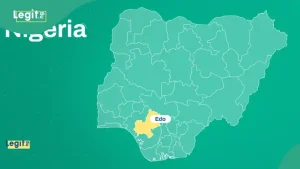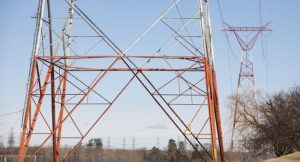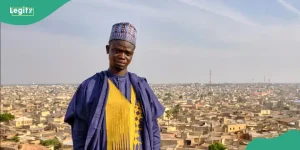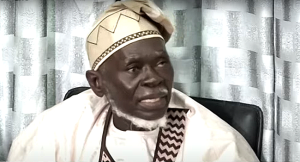
Teen Dies in Edo During Ritual to Test ‘Bulletproof’ Charm
The boy sustained severe head injuries and was rushed to a nearby hospital.
Read More
Comment
0

Tension looms in Lagos APC over alleged move by Obasa to install son as Agege LG chairman.
We cannot serve Obasa for over a decade and at the same time serve his son.
Read More
Comment
0

Saliva test could ‘turn the tide’ on prostate cancer, UK study finds
It analyses men's DNA to work out who was born with the greatest risk of developing the disease.
Read More
Comment
0

Federal government signs $329m deal with Chinese firm to boost power supply
The Federal Government has signed a $328.8 million contract with Chinese firm, China Machinery Engineering Corporation (CMEC), to rehabilitate and expand Nigeria’s electricity transmission network under Phase 1 of the Presidential Power Initiative...
Read More
Comment
0

“I was attacked by hoodlums and left with nothing — now my wife has abandoned me due to hunger,” man laments
The victim expresses dissatisfaction with the court's decision to grant bail to the suspect, highlighting concerns over local security and justice.
Read More
Comment
0

Human rights lawyer reveals how viral Peter Obi 15-year-old supporter ended up in Kirikiri Prison
Human rights lawyer Inibehe Effiong has revealed how Alabi Quadri, the teenager who went viral during Peter Obi's 2023 campaign, was allegedly framed for armed robbery. Quadri, who gained fame for greeting Obi during a Lagos rally, has been in...
Read More
Comment
0

Edo lawmakers amused as 2Baba’s fiancée, Hon. Osaworu, introduces herself as ‘née Idibia’
Hon. Natasha Osaworu had the Edo Assembly laughing when she introduced herself as ‘née Idibia’ — a cheeky nod to her relationship with Afrobeats king, 2Baba.
Read More
Comment
0

‘My career and business suffer whenever I fight Chioma’ – Davido
“If I’m fighting her, she will say, ‘you are fighting me? Sebi your album is coming, you want to fight me right?’ And I will start pleading with her. She has that grace”.
Read More
Comment
0

“I’ve cut ties with the Olunloyo family,” former Oyo governor’s daughter reveals.
In a surprising revelation, the daughter of a former Oyo State governor has publicly announced her decision to sever all ties with the Olunloyo family. Speaking in a recent interview, she cited personal reasons and longstanding differences as the...
Read More
Comment
0

Apapa declares self chair, LP breaks into three factions
The developments deepen the party's rift between Abure's camp and the Otti-Obi-backed faction, with Apapa's reemergence adding a third contender to the tussle.
Read More
Comment
0